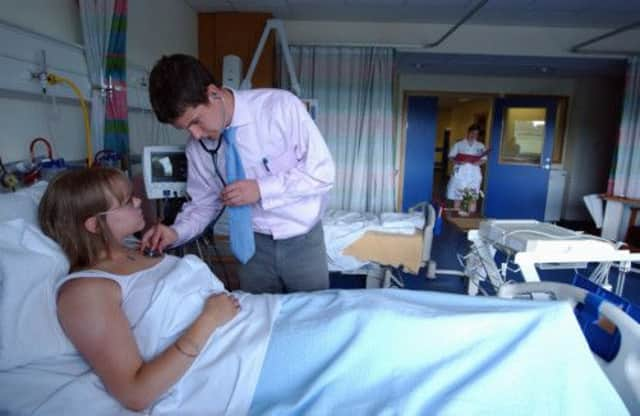Nikki Thompson: Unhealthy view of consultants’ role


Last week, The Scotsman reported on Scottish Government proposals to provide “round the clock” care in the NHS. Cabinet secretary Alex Neil said he envisaged “more senior [hospital] doctors being on site at weekends rather than on call at home. Since we are paying them anyway – very often triple time – to be on call it would be a far better use of their talent and resources to have them working and, for example, discharging patients who are ready to be discharged”.
But since this article was published, I have been inundated with correspondence from consultant colleagues across Scotland. They have expressed anger and incredulity at this distorted and misleading description of consultant “on call” working. I have never come across any situation where a consultant in Scotland is paid triple time to be available on call from home. Consultants are paid a supplement for being on call, which is a small percentage of their basic salary and varies depending on how often they are required to be available.
Advertisement
Hide AdAdvertisement
Hide AdFor example, a consultant on the middle of the pay scale, on call one night and weekend in five, will be paid £2.58 for every hour available on call. For actual work done while on call, a consultant will be paid at time and a third (ie 1.33 times basic, not three times); hardly triple time for on call “at home”.
I’ll be generous and suggest that this was a slip of the Cabinet secretary’s tongue rather than a lack of awareness about the detail of the Scottish consultant contract. I also believe that, for most patients and their families, the details of the consultant contract are beside the point – they are interested in safe, timely and appropriate care, and rightly so. However it is vital that a government with ambitions to “improve” NHS care by providing a more comprehensive service round the clock understands how the most skilled and experienced doctors in Scottish hospitals currently work, and the level of service they already provide.
In many acute hospital specialties, consultants, as well as other medical staff, are already present and working many hours in the evenings, at night and at weekends.
Increasingly, they are also covering the gaps where NHS boards are unable to attract doctors into consultant or trainee posts – an escalating problem that should be of concern to the Cabinet secretary.
Any plans for a further increase in consultant presence during these hours without an increase in consultant numbers needs to recognise that there will inevitably be commensurately less activity during weekdays.
There would, therefore, need to be a targeted increase in both medical and other staffing to support this additional service. For individual doctors, changes in working would need to be by agreement, so that working lives are safe and sustainable, and valuable skills are focused where they are most needed.
The Cabinet secretary has said that he wants to create a “genuinely seven-day” NHS in Scotland to “improve patient outcomes”. But before this idea can be developed, we need to know exactly what the Cabinet secretary’s vision is and how he intends to deliver it.
Is it a political sound-bite or is there a genuine desire to increase the capacity of the NHS (with matching resources) to deliver this objective? The British Medical Association’s Scottish consultants committee is, as ever, happy to engage constructively with the Cabinet secretary on how consultants can help (and be helped) to deliver what we both want, which is the highest quality of care to patients in Scotland.
Advertisement
Hide AdAdvertisement
Hide AdAnd if we’re trading sound-bites, I’ll match him with one of my own. The current Scottish consultant contract states that “emergency duties (both predictable and unpredictable) will be given first priority when allocating programmed activities for direct clinical care”. Even those not interested in doctors’ terms of service will recognise that this means delivering the best of our skills to the sickest of our patients, whenever they need it.
That always has and always will be our priority. If we want to continue to deliver this in times of unprecedented pressure on the Scottish health service, we need the Cabinet secretary to understand what we can deliver, what we are already delivering, and what resources and support we need to use our “talent and resources” to the full.
• Dr Nikki Thompson is a consultant anaesthetist and chair of the BMA’s Scottish consultants committee